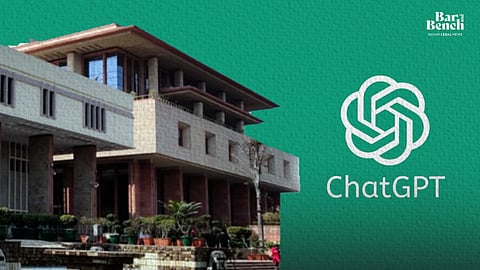
- Latest Legal News
- News
- Dealstreet
- Viewpoint
- Columns
- Interviews
- Law School
- Legal Jobs
- हिंदी
- ಕನ್ನಡ

The Delhi High Court on Thursday dismissed as withdrawn a petition filed by the Greenopolis Welfare Association (GWA) after respondents objected that the petition relied on fabricated extracts of Supreme Court judgments, allegedly generated through Artificial Intelligence (AI). [Greenopolis Welfare Association Vs Narender Singh]